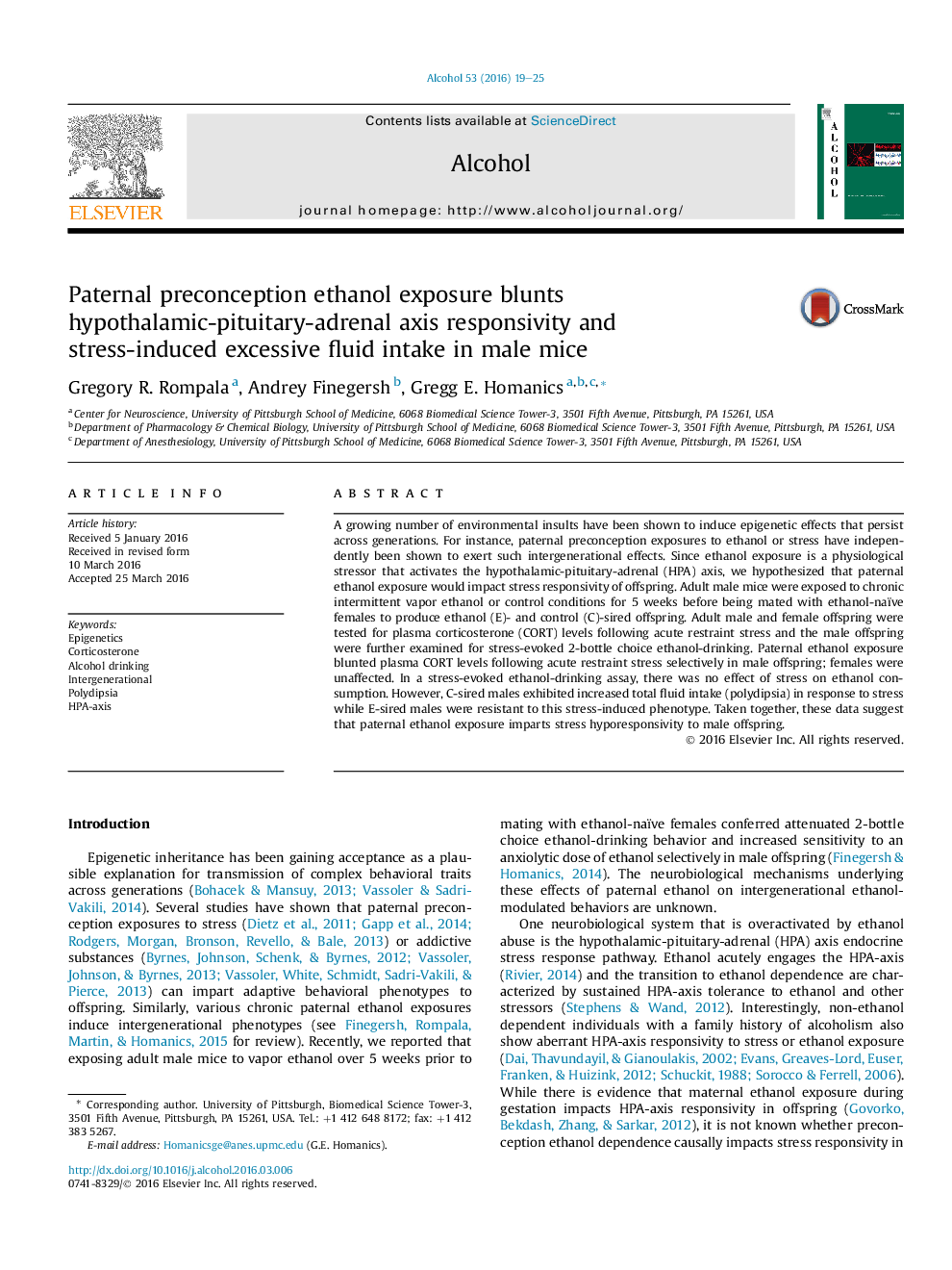| Article ID | Journal | Published Year | Pages | File Type |
|---|---|---|---|---|
| 1066813 | Alcohol | 2016 | 7 Pages |
•Paternal alcohol blunts acute HPA-axis responsivity selectively in male offspring.•Paternal alcohol has no effect on stress-evoked ethanol-drinking in male offspring.•Paternal alcohol prevents stress-induced behavior (polydipsia-like fluid intake) in male offspring.
A growing number of environmental insults have been shown to induce epigenetic effects that persist across generations. For instance, paternal preconception exposures to ethanol or stress have independently been shown to exert such intergenerational effects. Since ethanol exposure is a physiological stressor that activates the hypothalamic-pituitary-adrenal (HPA) axis, we hypothesized that paternal ethanol exposure would impact stress responsivity of offspring. Adult male mice were exposed to chronic intermittent vapor ethanol or control conditions for 5 weeks before being mated with ethanol-naïve females to produce ethanol (E)- and control (C)-sired offspring. Adult male and female offspring were tested for plasma corticosterone (CORT) levels following acute restraint stress and the male offspring were further examined for stress-evoked 2-bottle choice ethanol-drinking. Paternal ethanol exposure blunted plasma CORT levels following acute restraint stress selectively in male offspring; females were unaffected. In a stress-evoked ethanol-drinking assay, there was no effect of stress on ethanol consumption. However, C-sired males exhibited increased total fluid intake (polydipsia) in response to stress while E-sired males were resistant to this stress-induced phenotype. Taken together, these data suggest that paternal ethanol exposure imparts stress hyporesponsivity to male offspring.
